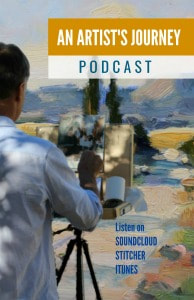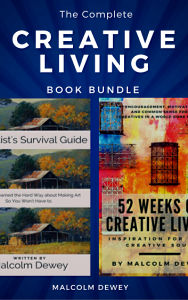|
How can artists and creatives find the focus to achieve business success? World uncertainty, financial pressures and distractions can keep this objective out of reach. My special guest in An Artist's Journey Podcast has dedicated herself to helping artists succeed. Plus she has a special gift for you too.
Find out more in the interview below!
Listen to the podcast on all major platforms including Spotify, Apple Podcasts and Stitcher
or on YouTube on my channel Enroll in the Course:
Connect with Sonja here:
Website is: https://www.sonjasmalheer.com Course is: https://www.sonjasmalheer.com/theworkingartistcourse Instagram: https://www.instagram.com/sonjasmalheer Facebook Community: https://www.facebook.com/groups/helpiamartistpodcast Podcast: https://podcasts.apple.com/nl/podcast/help-i-am-artist-podcast/id1455653421 Transcript:
How to Grow Your Art Business with Sonja Smalheer (Podcast #44)
Welcome to Episode 44 of an Artist's Journey podcast. It's good to be talking to you again, especially today with my special guest. She's a podcaster, a course creator and a coach, and she's also an artist. She's working with artists all over the world to help them improve their business skills and to thrive as artists, which is exactly what this podcast is all about. You will also find a download that our guest has provided. It is a document filled with practical tips to help you sell your art in these extraordinary times. And now without further delay, I want to introduce our guest today, Sonja Smalheer I'm going to ask Sonja to just tell us a little bit more about herself. She heralds from South Africa, now living in the Netherlands so she can give us a little bit of background, right to her present situation in the Netherlands. Welcome, Sonya. Thank you, Malcolm. So wonderful to be on your podcast. Great to be here. I owed you. And you owed me. Exactly. Crossing over. Thank you for inviting me. But yes, I am from Cape Town, South Africa. And born there and went to a Fairmont High School, which is in Durbanville. And then from there I went travelling. In South Africa, had an amazing teacher. So that really sparked my love for creativity and art. And it's always sort of gave me the impulses to go travelling or to to move abroad. I am living in the Netherlands now, maybe thirty three years close to Amsterdam. have married Marko, an amazing Dutch guy and being busy and active in the arts. So that's the short version of where I am now. And so, yes, that's where I'm at at present. OK, well, now I'm going to ask you a little bit about your art. You studied as an artist, I believe, and then you've gone from artist to now producing a popular podcast for artists, right up to coaching artists. So tell us a little bit about the transition from creating art to now helping artists with their businesses? Well, I just have to think of a story. When I was about eight, I won an art prize. My father woke me up in the middle of the night and said Sonja your name is in the newspaper. And there it was. I had won an art prize with this drawing or painting of a boy on a stool. And that's the first time I thought, oh, is it possible then maybe to make a career as an artist? Is this something that I could earn money with? Whatever that means when you're eight years old, so you have this fantasy. So that's something that sort of sparked when I was very young. And actually, to this day, I'm still working on that same theme. Is it possible to make a living as an artist? And what does that look like? And what does the life of a working artist look like and with all its nuances? So I did study first after high school, I went to New Mexico as a rotary exchange student. It was my first time out of South Africa and a world opened to me that was very interesting. I lived with a Hopi and the Zuni and the Navajo Indians. Art was always a part of their culture and was something that was just intertwined as a cultural expression, as craftsmanship. I took jewelry designing and ceramics and pottery. Very, very inspiring and interesting and this sort of laid a foundation to explore what's possible in this art world. Went back to South Africa and studied at Stellenbosch University, started on a B.A. art and yeah, interesting time, but I really wanted to go and see the art for myself. So I wanted to go and see all those beautiful paintings and artworks for myself and decided I was going to head over to Europe. I was privileged that I got a bursary to study art in the Netherlands. I went to art school, had some amazing teachers, but I had a very difficult time struggling. You know, being an artist. What does that mean? When I graduated, I didn't know what to do with my art. How was I going to sell it? This was pre Internet. You know how you need gallery representation, all those questions that you can struggle with trying to get into the difficult art market. And so I went on a whole journey really trying to find out how the art market works. I took marketing classes. I did a lot of failed attempts. And then eventually I thought, you know, now I see so many struggling artists, I'm going to create a platform. And that's where the podcast and my art coaching and created courses for artists. Also my website, these resources available to help artists set up some kind of system so that they can not only make the art without the stress, but really enjoy their craft. Enjoy their artistry, but also find ways to connect that with an audience to start selling and create a revenue stream. So that's really my passion. I made that transition of being a working artist myself, trying different things, failing at many attempts, getting into that online space, discovering what's possible. Also seeing not only just being an artist, but also as a business person, as an entrepreneur, and now taking artists on that journey with me. Wow. That is quite a fantastic story. And your whole experience from the early days right through. I suppose we are all part of our past experiences. We have to go through a few tough moments for it to actually sink in. But it will certainly help if you can shorten the time span and help artists get to somewhere quicker. So I'm sure that is a big issue. How can I get into a business quickly that will pay the rent? And also that you have more control? I think a lot of us feel that we are victims of circumstances or what education we had or our upbringing or the culture that we're living in. But you actually have more control over your success or your growth, whatever success means, it's different for everyone, than you actually think. That it's not external, but it's something that's internal. And that's all in the process that I take my artist students through. That you actually have more control. But that also means you are responsible, you're responsible. You can play a huge part in your own success, but that means that you need to do the work, need to show up means you need to, you know, get with the program and then you'll see results. So it's not so much externalizing. Yes, the market. Yes the time. You have control over it. That is such a profoundly important point. I think many artists I know are introverted people and also control freaks. We want to control. Otherwise, we get anxious if we can't control outcomes. And today, taking control is so important. It's essential. But there's a right way and a wrong way. So let me dive in to asking you, working with artists as you have been, what would you identify as the top hurdles or the most common problems that they're exposed to? Why are they stuck? What do you find is the typical thing? I think choosing the number one, the top. It is a distraction. I think there's so much coming at us. We are so bombarded with so many impulses, so many. Now with social media, with what we hear and see around us, that we start comparing, we start looking. We can get so paralyzed by everything. We are overconsuming so much information that we forget who we are and we lose focus. That's the number one question I ask my students and I say, What do you want? What do you want as an artist, where do you see yourself, where you going, where you're growing towards? And they sort of hit a blank. Now they can design beautiful paintings, make beautiful sculptures. They have a vision for the art, but they have found it difficult to envision a life as an artist. And when you have a focus, you can grow towards something. And then you can also protect yourself from being distracted by so many things and start nurturing a relationship with your own creativity. And that is a relationship to really understand and get , you know, self reflect, who are you as a person? What makes you you, what is your style? What do you love? What do you want to share with people? And it's almost in this time, we don't even have the peace and the calm to reflect because everyone else is telling us what we should do or how we should do it or how we should feel or how we should act. Also as an artist, you know, what is the role and what is an artist? Who's going to tell you what that is. It is coming home to yourself and relating to yourself. And I think that is such a powerful foundation if you want to make this something that's sustainable, but it takes courage to look inside because you're going to find things that are not always that comfortable. You need to overcome obstacles and discomforts. You have to go through ugly places to get to beautiful places. You need to see that you're not where you want to be. You're not mastering that skill yet. Yet in your taste level, you see things in your imagination. Oh, that's what I'd love to make. But your skill is not at that point. So there's this whole gap in your creativity that really can block you. So I think really getting honest and seeing, you know, who are you as a person? What are your needs? You're in a need to alter goals so that they can come into balance, so that you can be a wholesome person, but also a healthy, happy artist. And I think that just getting quiet at this time is helping. I've seen a lot of people going more into themselves, really, you know, deciding what's important for them. The world is not dictating that we need to go on holiday all the time. I need to travel and I need to be distracted. We're getting more in that moment or up to ourselves. So I think, yes, that would be number one. I suppose everybody manifests the issues around that whole lack of focus and it comes out in different ways. We were, just in our family having an argument just this past week about time. My daughter in law, who's really an excellent artist, mentions her time is such a problem. And when I said, you know, you're making that up with procrastinating and then the fight began and you know what it's like. And time is often thrown out immediately as the first sort of excuse. But it's you know, it's if you take away all those focus issues you mentioned, which, by the way, I got quite anxious just listening to all that, social media distraction is really debilitating. Everyone has the same amount of time. Just to throw in a question, what are some of your favorite procrastination excuses that get thrown at you or justifications for not succeeding? I think you can see them. There are those external excuses and then those internal excuses that you think, you know, you are a victim, your circumstances or the time or the economy, that the reason to not do it or to do it tomorrow. There are so many artists out there. So people are so overwhelmed that I just think, well, you know, who's going to listen to me, who's going to look at my art and listen to my story, who's interested? And they can actually pay for it? So these are all limiting beliefs that just put you down and limit you from starting. And so to get into the right headspace is super important. And then the internal conflict that you have with yourself, you know, continues to have that inner critic - I'm not good enough, I'm not talented enough or I don't have the right opportunities. And these are all excuses to not do it. But procrastination, you know, that's the. The answer to that is to get clear. Clear about what you want, clear about choosing. Something is only a distraction if you know what you're being distracted from. So if you don't know where you're going, you're not being distracted because you don't know where you're going. If you do something intentionally with your choosing, Now, I'm going to watch or binge on a Netflix series. Then you're choosing. You're not procrastinating because you're choosing. But if you're not choosing anything, external things are going to choose for you and they're going to choose all your time. They are going to rob you. And there's so many things robbing our time. But you need to not only master your art, you need to master your time, your energy. You are responsible for your own progress. And that's the whole thing about not being a victim. So, yes, there is always this in different forms and different with different characters, but enough reasons always to not do it because it's based a lot on fear of not being good enough. That is a critical thing you mentioned is just getting that clarity and you're helping others to get clarity, because if the artist doesn't have clarity, then they are going to fall back on the defenses. No time or you can't make money or this or that. And as I've discovered, the moment you challenge someone's defenses, then they have to defend that and you hit a wall. So get clarity first and then you can go forward. OK, now let's just switch it around a bit to the artists that you've been working with and who are finding success and are achieving great things. What are the common characteristics of artists that seem to be able to do and live an amazing life as an artist? I think to start off with getting really clear what success means to you, that's the first step. I take the artist through to get really clear about that, because there are a lot of people that think they want to earn their living from their creativity, but they don't like the business side. Then I say, well, why don't you just have your job and do this as a passion, something that you love to do and that could be your success, not feeling the pressure. You need to have to have this as a full time profession. But there are artists that want to take the transition from having it as a hobby or something, that they're doing part time and they want to make it full time and make it a profession. And that's a tricky one, because you are not only transitioning in your artistry, where it is pressure, you are going to transition into being an entrepreneur, being a business person who also needs to have an understanding of finances, economics, marketing, communication, connecting what you're doing with the public. So there are all kinds of extra factors and a lot of moving parts when it comes to setting up a business structure around your creativity. And I found the people that go further are the people that are well informed. They are open to learn, have a learning spirit, always inquisitive to learn new things. So not limiting, but growing. They surround themselves with people that support them. So they have a support base. So it's not just about them and the art and the studio, but they are whole people. They have relationships. So there's a balance that they don't get burnt out after the first three years of trying to make the art. They still have a life they lead. They are interested in other artists, open to them. The impulses around them, so they could make it out from their place of authenticity and the big thing, I think, especially nowadays, is communication. You know, the old school used to be gallery representation. That was like the only option. Or you need to go and stand on that street corner selling your own work or go to the art fairs. But the online space has, of course, changed everything. And the artists that I see succeeding have found creative ways to not only make better art, but also use that space to their advantage, finding new niches to promote and to communicate about the art. And that is such an important part in being an artist nowadays. Is your communication because that's all it is. You'd have a cold screen that you want to show people, your beautiful art, the textures, the colors. How are you going to put that on that screen so that people experience art as if they're walking in a gallery or as if they are experiencing it firsthand. So those are, you know, there so many wins that you could do. These are many steps that successful artists can take. And as those artists that do that in a sort of structural way with focus, I see them having the most success. It sounds like a daunting road ahead for any beginner artist. Important thing is that nothing happens overnight either. And you are helping them to just head in the right direction, we will get a bit more into the communication and technology in a moment. I just wanted to touch on what you mentioned in the beginning. Some artists have been using the whole covid-19 issue, practically the entire last year and is still being felt around the world at the moment. It could either be the most negative circumstance or it's been positive. let's just discuss perhaps both sides. At first, the negative impact and then how artists managed to find their way around it and use it to help grow. Look for many, many creatives, you know, it's been a very tough year. And last year and this year, because the galleries are closed and now here in northern Europe, the museums are closed for interaction, the in-person events have all been canceled. So what you used to do and how to communicate and in-person events, that is no go, but also art classes and connecting with other creatives. It's not happening having a social life around creativity that's all gone, with the lock down in the place, you know, behind the doors. So we've had to unlock new doors to do the communication. And I think mentally and emotionally, that was such a knock for a lot of creatives because there were so many. There already are so many uncertainties. When you are a creative, when you're building a creative business, these ebbs and flows and usually there are more downs than ups. And so you have to find new ways. I think for a lot, especially starting out, it was really daunting. And we were sort of into survival mode. And a lot of creatives that I was working with found it very difficult to create. At first, like you need to get through that first six months, what's happening and how long this is going to be lasting and how fake is this virus. And there was a lot of distraction, but I found like within the second after the summer or early summer, your winter, that artists started bouncing back. And I think I so admire the creative spirit that there's such resilience that if you are open, you can find a way. It's like a river with stones thrown in. It'll go around the stones. It'll make a new path. And I just spoke to an artist friend last week and she said, I've had my best year ever, and I said, well, what did you do? She said, I changed the way I thought I'd stop seeing. My glass is half empty. I started seeing as full, you know, full with possibilities and that people even in a lockdown are still wanting to surround themselves with beauty. They are staring at that wall more than ever. They are sitting on their couches in their homes thinking, how can I bring that what I used to do outside into my home? And, you know, if you find ways to connect that with your art audience, with your potential buyers or collectors, by communicating, by showing up, there's enormous potential. So, yes, very difficult. But opportunities. Enough, I think one thing that we all now know is multiple streams of income is the key phrase and we hear that so much. And it is daunting for many artists to quickly start thinking about multiple streams of income, putting things together. And this has resulted in a lot of artists getting out of their comfort zone and having to learn new techniques, new means of communication, publication, facing technology. How do you explain or how do you help somebody who was perhaps born many, many years ago, like myself, and is faced with perhaps four or five types of technology, you know, like Zoom, for instance, having to now consider hosting a Zoom call and then being able to communicate in writing, in video and voice are quite scary, Definitely, you know, this change is always uncomfortable and always daunting and can be very overwhelming. And there is a lot possible and always you say start small, start with your next step. Break it down into small little steps. And then you can say OK, now you need to start diversifying. So I have been making originals. So now I need to consider. Am I going to make reproductions so I can sell more at a lower price through my online shop or Etsy or through your website? Let us break it down into little steps. That means you need the photos. You need to find communication channels. You need to find a printer who can actually physically print them. So then you open up a Google and you start searching. Who did you know, who does that in your village or your city? Speak to other artists that have done it. Ask for help. The big word, help. I find it difficult to ask for help. But there's so many people that are knowledgeable and you don't need to do everything yourself. And then maybe you think, OK, but I don't have money. Then you make a plan and say, OK, maybe I can't do it this quarter, but in six months time I can invest a little bit more. So I'm going to save so that you're doing it very intentionally. So I can then maybe take a course on how to set up my own website through Squarespace, or I can follow a course on how to use that technology. I always say if you can bake a cake, you can use technology because it's logical steps. I think it's a mindset thing, especially for us non millennials that we think, oh, so fast. I know you ask your kids to explain things and they rattle away and you don't really know what they're saying. You know, I just have to just start and maybe press the wrong buttons. Your computer won't explode. Get comfortable with the surroundings and have that mindset of learning, and there's so much online that you can also use for free. You can follow workshops, join a Facebook group, people that are talking about these technologies. I think it starts with the mindset and then starting with small steps breaking it down. What do I need? And I don't think I want to conquer this whole online space and master all the technology because you think, you know, today, tomorrow, it will have changed already and ask for help. Get help and bite size chunks. Now, a bit more on the communication side. Not so long ago, the advice was, listen, put your work up on social media and you'll be selling like hotcakes in no time. That was literally advice I was given by it's probably about eight years ago, but now it's time has flown and and I thought, OK, that's great. Opened up and the usual social media accounts. And of course, nothing was happening and everybody else seemed to be selling. And you feel lost. Now social media is a part of marketing, but a lot of people are looking at it as the answer to the number one answer. And it's not working quite that way. As expected, what do you say to them? Social media channels - there are plenty. They are vehicles to bring you to where you want to go. So before we even open a social account, you need to know what you're doing in that space. It's not just like, OK, everyone has accounts. I'm going to get an account. And OK, I'm on social media. Come on, buy my art. It is like having a car. You can look at the car, you can have a car. But if you don't get in the car driving where you want to go, it's, you know, it's just a car. So that's the same with social media. You need to intentionally understand how social media works so that it's not the beginning and end of things. It's how you use that channel to bring you where you want to go very intentionally. And I know artists, they use it as a place of communication, a place of conversation with their followers and other artists specifically use it to sell, other artists to use to educate. So really connecting and telling more about processes. So these different functions also with the different platform. First start on paper, what is it that you want? You want to sell your art, then you need to get clear about, OK, you as the artist, what are you comfortable with? How often do you want to be on this? How are you going to make photos of your art? How are you going to write about it and who is your audience? Because It's not for everyone. And a lot of artists are on social media platforms or have Instagram accounts, having conversations with their grandmothers or their friends, and they're not their art audiences. So then you got to really drill down to who it is that you are actually wanting to connect with? There are all kinds of tactics that you can use to intentionally connect with your audience. Use a hashtag. Who are you following? Who is going to eventually follow you? And that's a long process. It's not a tool that is a quick fix. It is a way of communication, but you need to have other things besides just the social presence. And being able to talk about your art or as you say, in the old days, the elevator pitch. Can you talk if you are put on the spot by a total stranger? Can you actually talk about your art without getting tongue tied or not knowing what you need to say? A very few people actually think about it beyond saying I'm an artist and then anything can happen that can just go off the rails so quickly. So. Actually thinking about it. Even if you have to practice, write it down, work it out. But be prepared. I think a lot of artists will be introverts who are sitting in our studios or making our art. So that's our happy, comfortable place. And we not we haven't been trained to communicate verbally. So that's also not just our art speaks for itself. That's a big myth. You need to add different communication streams like words, like images, like stories around the things that you're doing and that indeed you need something that you really can improve on that's like a thing that you can learn to a new sport or a new craft, you know, like a technique practiced in the mirror. Practice on your video. Ask people for help. For example my husband. He always found it difficult to communicate. He did a voice training course and he just changed his life. He's in sales. Just by learning how to, you know, not be afraid of your voice, not being afraid of what you are communicating, finding ways to get comfortable in your skin, to actually stand in front of people, whether that's in camera or in person, it can be life changing. And this for artists, this is golden because that's where you can make a difference, because people want to hear from you, not just at the opening of exhibitions. The artists are hiding behind plants and hiding behind their paintings. They don't want to take the moment to actually share about their work. And that's a golden moment. That's something I take my students to do voice training. They do public speaking. How can you take your moments? This is where you can make a big difference and it can all be learned. That's all trainable and doable. I just want to mention that anyone who wants to learn about using Instagram better can just watch and follow you and see how you're setting up your stories. For instance, I think are really looking fantastic. OK, let's jump in to your offerings, your services that you are putting out there. I know you've been working on podcasts for quite some time and sharing valuable lessons from artists all over the world. And everyone can listen to your podcasts and get tons of information that way. But you've also extended into coaching. Tell us a little bit more about what you are offering and how artists can get in touch with you and participate. Well, that's the beauty of the online space. I've done a lot of teaching in-person at seminars and conferences and workshops, but I've taken that platform actually online, so it's accessible to far more people. So my website is actually the hub where everything is happening. That's where I meet with my students and I offer online courses. And then I have my coaching. So that's the possibilities for artists that want to do the coaching side on a one on one trajectory. Maybe they're stuck and they just need to know, OK, what's my next step? Do they want to go through a trajectory of 10 or 20 coaching calls. They are usually an hour, on Zoom or through Skype or whatever technology that we can connect on. And so it's very structured, taking new steps, next steps towards what you want as an artist to really help you grow. And then I made a course. It's called The Working Artist course. It's a 12 week online training that artists from all over the world get together. We all start together. So we start on the 1st of March. That's for 2021. I only open it once a year. And then we go through a whole process. It's a framework from module one to the 12th week of setting up that system, how you can tune your creativity into a revenue stream. So it has everything about the artist part. Setting up your body of work. Why are you making your art and what is it that you want to communicate. Your creative vision and then how you kind of connect with an art audience? So that's the marketing, the branding, setting up a brand feel so that your social channels are coherent, your photography is coherent. People start recognizing you and how can you communicate verbally and, you know, use the social channels and then all kinds of teachers. I'm really excited. This year we have six guest teachers coming in. Maryka Williams, for example, she's an award winning South African photographer. She's an amazing visual artist and she's going to be sharing. We have a gallerist, we have an illustrator, we have watercolorist. All just giving people that have been in the trenches. They're going to be sharing their vision and the students can have contact with them in live sessions. So it's prerecorded. But also we have life teaching sessions. Sounds fantastic. As you're describing these benefits of your coaching and courses, it strikes me that you're actually helping artists save the thing they need the most. And it is time because you can literally save years. Otherwise, if you're going to do everything through trial and error and wait for life to throw curveballs at you, it's going to be a long, hard journey. But, you know, you can literally save auto skills in one thing I noticed on your website that I liked, you said if you're tired of living on likes. Yes, That's not nutritious. It just you cannot take that to the bank. And yes, there's nothing like in the old days when if you had to go and talk to the bank manager and he explained to you what cash flow was, and he wasn't seeing any of that in your account, that is a sobering moment. We're heading into twenty, twenty one and nobody is quite aware of. What lies ahead, so an artist who may be considering joining one of your programs, you're going to take that uncertainty or at least hope to remove some of it, Sonja when do you open again? Did you mention your enrollment opens on the 15th of February? The enrollment on 15 February and then the course starts on March 1st. It's the first module where people want to join in and they are happening to listen to this podcast. And it coincides then the 1st of March, you have until the 1st of March to enroll. And then we'll start with the first module together and then we go 12 weeks together till the end of May. And then next year, people, you know, if they can't make it this year, then I'll be opening up in the beginning of the year again for 2022. But in the meantime, you know, there's a lot of resources on my website. They have a Facebook community and they every week I'm doing live sessions because I really am passionate about helping artists. So, you know, to really get momentum. And then it's so cool doing it with other artists because we all have similar questions, maybe different settings and different cultures. But there's really such power in doing things together with other people collaborating. And that's really the beauty of this, the possibility of connecting with artists all over the world. And also, just to clarify, if someone doesn't make it in time for your February enrollment, are you still able to do one to one coaching? Yes, that's throughout the year, so people can sign up on my website under the tab coaching, they can see what's possible. Single consult or a trajectory. There's a wonderful digital calendar. People can log in and just see what time slots suit them. And I'll be in touch with them just to see what is your need and if it's a good fit for them and they can email or DM me. All right. Excellent. I also want to mention that you are currently providing a download of some material that I will put on my blog with this episode, and people can download it for free and just get working with you and finding more about what you can offer them. OK, I think if you've really set the scene for helping artists and anyone who has any doubts about their career, well, they can just get hold of you and and learn and probably save them so much anxiety. And when you're not working, besides visiting galleries that I'm extremely jealous about. What do you do in your spare time? I love nature. I’m an outside person, you cannot take South Africa out of a person. And I'm really outside as much as possible enjoying nature and spending time with friends as much as possible. Now, ride a lot of bikes here in the Netherlands, nice and flat to navigate around and, you know, Europe just so many options and the possibilities in normal circumstances. So, yeah, it's really an inspiring place to be. So what is your favorite art museum in the Netherlands? Oh, they depends on the mood. We have these passes. It's like a card. It's called the museum card. You pay 50 euros. I think it's 50 or 60 euros a year and you can get in everywhere for free. So that means I used to work in Amsterdam a lot more. Then I used to go have lunch with van Gogh. Then I just sit on the bench and I just look at one or two paintings without thinking I have to spend 17 euros. Or, you know, I should really hurry and see everything. So you can sort of take bite sized pieces of all the galleries and museums. But there really is a beautiful new museum called Museum More. It's a contemporary modern museum, but the art passionist that built the building around the art. And so the whole experience of walking around, how the light falls on the paintings, the ambience, the beautiful cafe. That really is so small in the east of the Netherlands, but it's just such a beautiful museum and gallery. Sounds amazing. Just a final question. I'm just thinking, as you are talking, about these wonderful venues, how would you describe the art scene over there in the Netherlands, specifically for your typical artist? Are there a lot of town galleries open for artists? Is it all gallery driven or the informal markets? What are the popular ways for artists in your town, perhaps, or city to get their work art? Look, there's a long tradition of art in the Netherlands, in northern Europe. So there really is such a history just walking through the city. It's already a museum of being so old. The Side notes is that we're quite spoiled. We are quiet, so there's a sort of complacency and not so much excitement about art because people think it's around us. We have it. And that's why I love going to South Africa. I love going to new nations because there's still excitement. People are trying things, experimenting, you know, getting really, you know, hitting up against the wall, the interesting exhibitions. I love that vibe. Also, when I go to South Africa and also to different nations with the developing art culture. We do have a local art fair. So we have open studios once a year and people open up their studios, art, local artists, so that you can go on your bike and go around and then see the different arts. And that's always exciting. You think, I didn't know there was an artist on the road or didn't know he or she was making that and it just, you know, gives you an idea of what's actually happening. There are so many people busy with creativity that it's really inspiring to see. So when are you planning to come back to South Africa? Travel restrictions notwithstanding? I plan every day, Malcolm. Every day I'm thinking, oh, if only we had a trip planned at the beginning of the year, but now it's not happening. I think you just made it last year, didn't you? Yeah, by the skin of our teeth. We just got back before all the borders closed and that everything just happened. So we were really happy that we got that trip in. But now it's just waiting it out. We really don't know how that's going to develop. We just take it one day at a time. All right. Excellent. Well, I think we can wrap it up there, Sonja. And just to the last word is your website address. Thanks to my husband very much. It's Sonja with a J. So as is in J and then smal as in narrow, small is in a L and then heer as in gentlemen or Lord heer, dot com. So sonjasmalheer.com. That's my handle on Instagram and also on Facebook. Alright, I'll put those links in as well in the show notes. And lastly, I just want to say thank you very much for taking the time and joining me on the podcast, and I wish you great success with your February enrollment and that you stay very busy and keep growing and helping lots of artists. So good luck. Thank you, Malcolm, for inviting me and that I could be your guest. It's nice to be on the other side of the story and. Yeah, wish you all the best, too. Thanks very much, Sonia. I want to thank Sonja Smalheer for appearing on an artist podcast today. I'm sure you'll find plenty of information on her website from all of her podcasts. And if you hurry, you'll be able to join her course, which launches on the 15th of February. Twenty twenty one. And you have two weeks to enroll before it starts at the end of February. So go along and have a look at her course and learn about everything to help you grow your art business. Also, just a reminder that you can find the show notes and the free download provided by Sonia on my blog at Malcolm to find out it is free and instant. So go ahead and check that out. Fundi, thank you for joining me today. And remember that you can find all my courses on various topics and mediums. Look on my website at painting courses. |
AuthorMalcolm Dewey: Artist. Country: South Africa Archives
June 2024
Categories
All
FREE
|
|

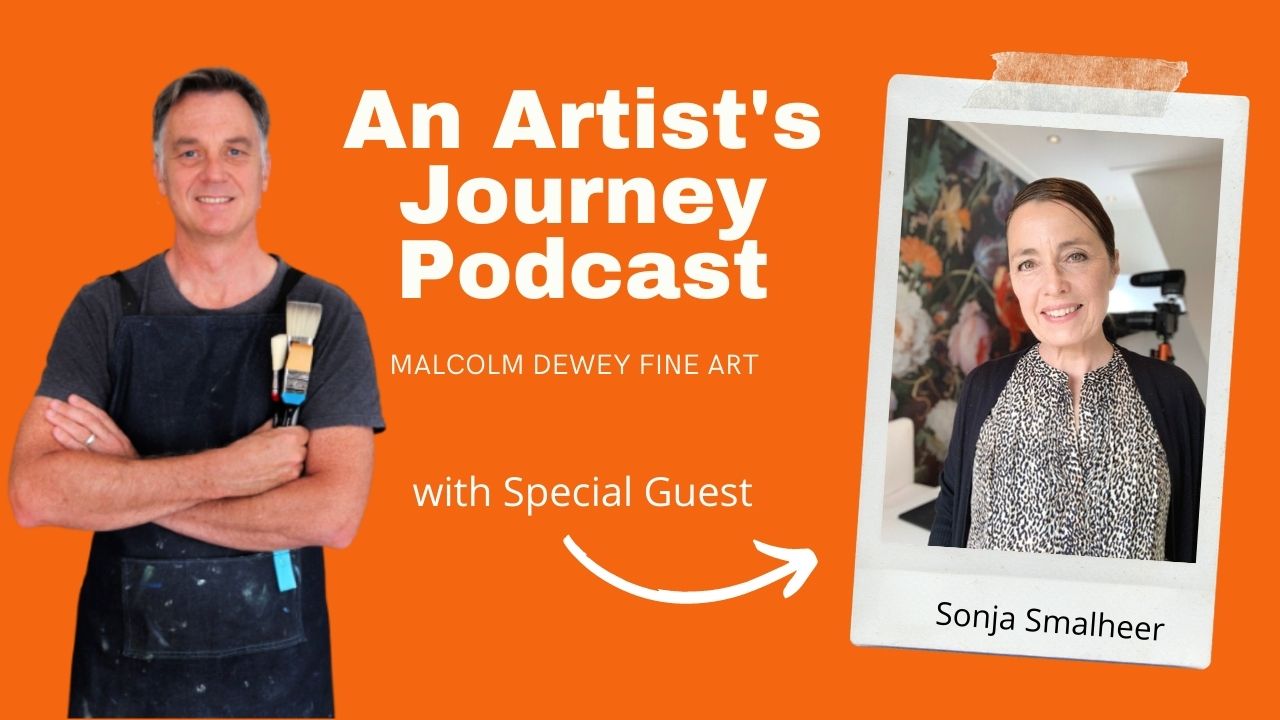
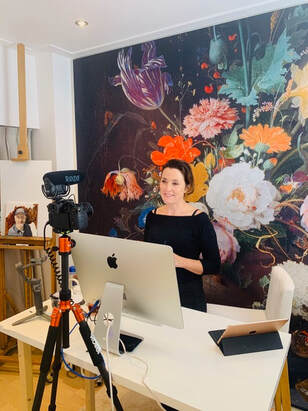
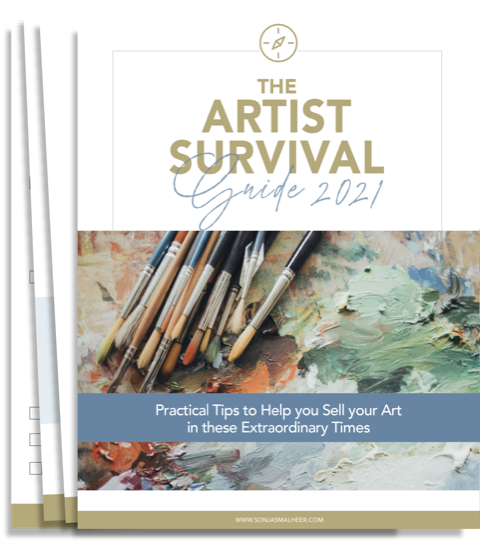
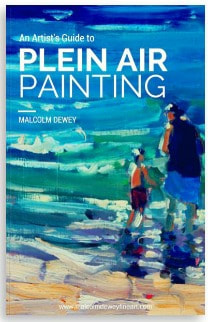
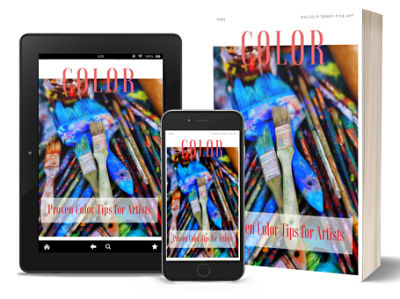
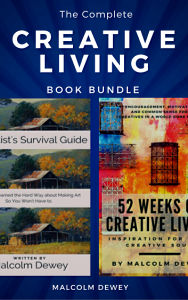
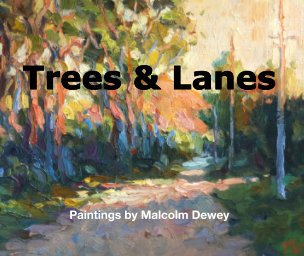

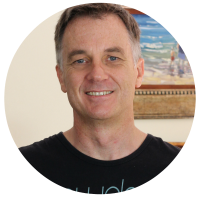
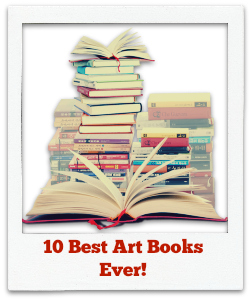
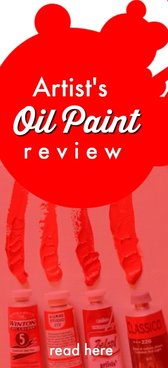
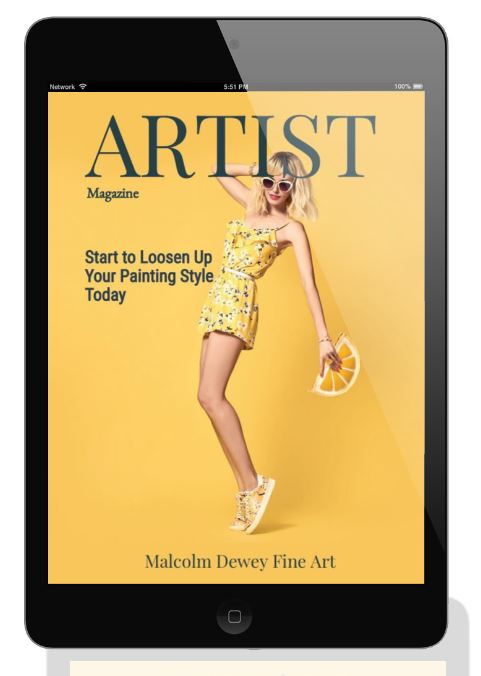
 RSS Feed
RSS Feed
